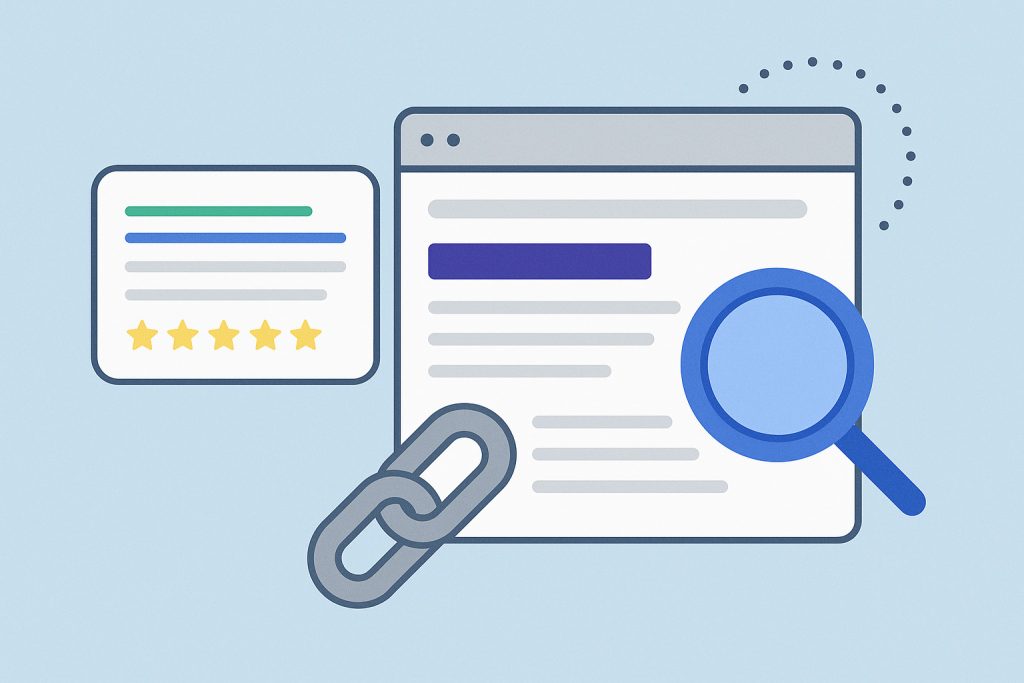Local SEO focuses on optimizing your website to attract more business from relevant local searches. It is essential for businesses that serve a specific geographic area, helping them to connect with potential customers in their vicinity. Following SEO best practices is crucial to maximizing your visibility in local search results. Here’s a comprehensive guide to local SEO strategies that can enhance your local search presence and drive more local traffic to your business.
1. Optimize Your Google My Business Listing
Google My Business (GMB) is a critical tool for local SEO, providing visibility in local search results and Google Maps.
- Claim and Verify Your Listing: Ensure that your business is claimed and verified on Google My Business to manage and update your information.
- Complete All Information: Fill out all sections of your GMB profile, including business name, address, phone number, hours, and website URL.
- Add High-Quality Photos: Upload high-quality photos of your business, products, and services to attract more customers and enhance your profile’s appeal.
- Encourage Reviews: Ask satisfied customers to leave positive reviews on your GMB listing. Respond to reviews promptly to engage with customers and improve your reputation.
2. Optimize Your Website for Local Keywords
Incorporating local keywords into your website content helps search engines understand your business’s location and relevance to local searches.
- Research Local Keywords: Use tools like Google Keyword Planner to find keywords that are relevant to your business and location.
- Include Keywords in Content: Integrate local keywords naturally into your website’s content, including headings, paragraphs, and meta descriptions.
- Optimize Local Landing Pages: Create dedicated landing pages for different locations or service areas, each optimized for relevant local keywords.
3. Improve Local Citations
Local citations are mentions of your business’s name, address, and phone number (NAP) across various online directories and platforms.
- Ensure Consistency: Maintain consistent NAP information across all citations to avoid confusion and enhance local search rankings.
- Submit to Local Directories: List your business in reputable local directories, such as Yelp, Yellow Pages, and local chamber of commerce websites.
- Check Citation Quality: Use tools like Moz’s Citation Explorer to check the quality and consistency of your citations.
4. Build Local Links
Local backlinks from reputable local sources can boost your local search visibility and authority.
- Engage with Local Organizations: Partner with local organizations, charities, or events to earn backlinks from their websites.
- Get Featured in Local Media: Reach out to local news outlets, blogs, and industry publications to get featured and earn valuable local links.
- Sponsor Local Events: Sponsor or participate in local events and get mentioned on event websites and promotional materials.
Understanding the role of backlinks in SEO is vital, as they help build authority and trust with search engines, ultimately boosting your local search visibility.
5. Create Locally Relevant Content
Content that resonates with local audiences can drive engagement and attract local search traffic.
- Publish Local News and Updates: Share news, events, or updates related to your local area or industry to engage with your community.
- Write Local Guides: Create guides or blog posts about local attractions, services, or tips relevant to your area.
- Highlight Local Customer Stories: Feature testimonials or case studies from local customers to build trust and relevance.
6. Utilize Structured Data Markup
Structured data markup helps search engines understand your content and improve local search visibility.
- Implement Local Business Schema: Add local business schema markup to your website to provide search engines with detailed information about your business.
- Use Schema Markup for Reviews: Include schema markup for reviews and ratings to enhance your visibility in local search results and attract potential customers.
7. Optimize for Mobile and Voice Search
With the rise of mobile and voice search, optimizing your site for these formats is crucial for local SEO.
- Ensure Mobile Friendliness: Make sure your website is mobile-friendly and loads quickly on mobile devices. Google’s Mobile-Friendly Test tool can help assess your site’s performance.
- Optimize for Voice Search: Use natural language and local keywords in your content to address common voice search queries and improve your chances of appearing in voice search results.
8. Monitor Local SEO Performance
Regularly monitoring and analyzing your local SEO performance helps you identify areas for improvement and measure success.
- Track Local Search Rankings: Use tools like Google Search Console or local SEO tools to track your local search rankings and performance.
- Analyze Google My Business Insights: Review GMB insights to understand how customers are finding and interacting with your business listing.
- Adjust Strategies as Needed: Based on performance data, adjust your local SEO strategies to address any issues and optimize results.
Conclusion
Implementing effective local SEO strategies is essential for improving your business’s visibility and attracting local customers. By optimizing your Google My Business listing, using local keywords, building local citations, and creating locally relevant content, you can enhance your local search presence and drive more targeted traffic to your business. Regularly monitor your local SEO efforts and adjust your strategies to stay competitive and continue growing your local audience.





